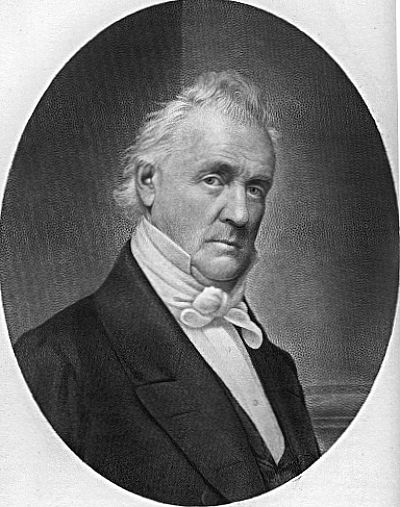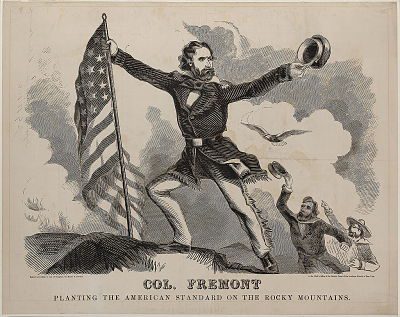
Bad arguments make good men do bad things.
Even a very good man can outthink himself and justify bad choices. This is particularly tempting when we wish to do something or the choice is what most people in our social group are doing.
Kids just say: “Everyone is doing it.” Grownups say: “It is the lesser of two evils.” Grownups are wicked without the honesty of the motivation.
Insight: choosing the lesser of two evils is almost always wrong. When asked to choose between Evil 1 and Evil 2, say no. If there is a fly in your soup, then do not eat it or throw it on the waiter. You can think of a third choice!
If you hate doing either thing, wait a bit. You may discover that this was a false choice.
First, there are very few cases where a person must either choose Evil 1 or Evil 2. In most cases, we could choose to do nothing or find a third choice.
Second, if you do not choose Evil 1, then you have not chosen Evil 2 in most normal situations.
Imagine facing an American political election between an incompetent Democratic Secretary of State and a Republican with an unstable personality. What if I do not vote for either bad candidate?

Some helpful soul will try to get my vote by pointing out that if I do not vote for one, then the other will get my vote. This is . . . dumb.
If I do not vote for former Democratic Secretary of State James Buchanan, then I have not given a vote to Republican lunatic John C Fremont. Otherwise my not voting for Republican lunatic John C Fremont would be a vote for Democratic Secretary of State James Buchanan.
I cannot vote for both people by voting for neither!
There is a deeper problem with the argument. If I endorse Fremont by voting for him, then I have supported Fremont. I am now (slightly) responsible for the evils he might do. If I do not vote for either, then whoever wins, the Democrat and Republican parties are responsible for giving me two bad choices and the voters are responsible for the actions of the winner.
I have no moral obligation to vote or choose in most real world situations. Those of us who work in philosophy know how to construct very clever situations where choosing the “lesser of two evils” might be moral. Fortunately, these bizarre life boat situations don’t happen often in real life.
A better response to my criticism is that in any choice between two people we are always choosing between two flawed beings: it is the lesser of two evils regardless. Voters have no choice but to vote for a lesser evil!
This is sort-of-true, but a bad basis for voting. Candidates are all a mixed bag, so they also have good qualities. Buchanan was very qualified for President and Fremont represented a Party more likely to overturn slavery. If I had voted for Buchanan, it would have been with the hope that his experience would have helped him avoid a civil war. If I had voted for Fremont, it would have been with the desire for better appointments to the Supreme Court to avoid (1857) cases like Dred Scott.
Both Buchanan and Fremont were bad choices, but had good qualities. Fremont was unstable, but more anti-slavery. Buchanan had experience, but from the slavery party.
Good men will tend to vote for unfit persons based on hope. However, if the Republican Party had elected Fremont, then there would never have been a President Lincoln. Fremont was a disaster as a wartime general under Lincoln, so God help the USA if he had become Commander in Chief. By choosing Fremont, one puts off future options and instead rewards the Party for making such an unsuitable choice.
But look how bad things turned out under Buchanan? How could things have been worse? Let’s give the moral voter foreknowledge to know how bad Buchanan was. He was easily our worst President. Yet that assumes that Fremont the unready, unstable, and incompetent would have been better in 1856 and that is very dubious. Instead, the Civil War might have happened in 1856 with a President much less fit for office than Abraham Lincoln.
Here is what is worse than the Civil War: losing the Civil War. We would have damned generations more to slavery and lost the Union.
When someone says “nothing could be worse” than that, they have not read history. I hate Bolshevism. It murdered millions of my brothers and sisters in Christ. Yet if I fell for the notion that the “black shirts” of Mussolini needed my vote to put off communism in Italy, then I would have made a mistake. My vote would have associated my Christian witness with the black shirts and they were no better than the red shirts.
Better to die in the middle than to be co-opted by one evil group to kill the other. The worst immorality often happens when good men begin to avoid condemning horrible flaws in their guy to win power.
What if one candidate is really evil while the other candidate is only fairly evil? To pick an extreme case: shouldn’t I pick James Buchanan over Stalin?
I think not. If James Buchanan is all that stands between Stalin and my family, we are doomed. If one party coughs up Stalin and the other Buchanan, then there is hell to pay and I would prefer not to pick up that check.
Finally, isn’t the reason I only have two choices that Americans think they only have two choices? In that case, my voting for the “lesser of two evils,” does prolong not getting a third choice.
One last defense of “lesser of two evils” voting might be raised:
All candidates are flawed. What if Fremont is temperamentally unsuited for President, but promises to try better and get good advisors? We know Buchanan will appoint people like soft-on-slavery folk. A President Fremont might give us a better cabinet and Supreme Court. Isn’t a vote for Fremont a vote for hope?
This is a very good point, but depends on Fremont not disqualifying himself. To give an example: if Fremont ran (as he did not) on a platform advocating torture, then no Christian could vote for him. If Fremont ran dodgy land deals that defrauded Indian reservations, then that is “too evil.”
Every voter, even every Christian voter, will have a line that cannot be crossed. Here are three tips to know if a candidate has crossed the Christian ethical line where he or she is unworthy or our vote:
The candidate advocates a direct moral evil. For example, a candidate might say that abortion is moral or that torture is licit.
When it comes to policy, a candidate might advocate something we think will do harm. However, if the candidate argues it will not, plausibly, then that candidate will still be worthy of support. For example, no Christian can vote for a candidate who would harm the poor as a matter of policy, but what “harms” the poor is often a matter of debate.
Killing the poor is not a matter of debate. It is wicked.
The candidate is not sorry about some gross public or private evil.
For example, the candidate lies, is caught, and then continues to defend his or her lie. No Christian is perfect or will find a perfect candidate, but we cannot vote for a person who is proud of his or her vice.
The candidate manifests what a reasonable person would take to be serious psychological problems.
The candidate “dog whistles” to evil groups repetively.
A Democrat in 1856 might have said “he was personally opposed to slavery,” but still give “dog whistles” to slavers that showed he was with them.
(In politics a “dog whistle” a signal from a candidate, not audible to most, that shows support. If a candidate says: “I want to do things ‘decently and in order.’ he is showing a knowledge of the Bible that can be a dog whistle to Christian voters. Non-Christian voters might miss the Biblical reference, but Church goers would not.)
The bottom line ethically is that if one cannot find a candidate who is morally fit, then not voting is better than trying to find the “least unfit” candidate. If you ever were to find yourself saying: “I would never vote for Fremont, but Buchanan is worse.” then you probably are about to do a bad thing for bad reasons while trying to be good.
Most wickedness in the world comes when good people do bad things while trying to be good.











